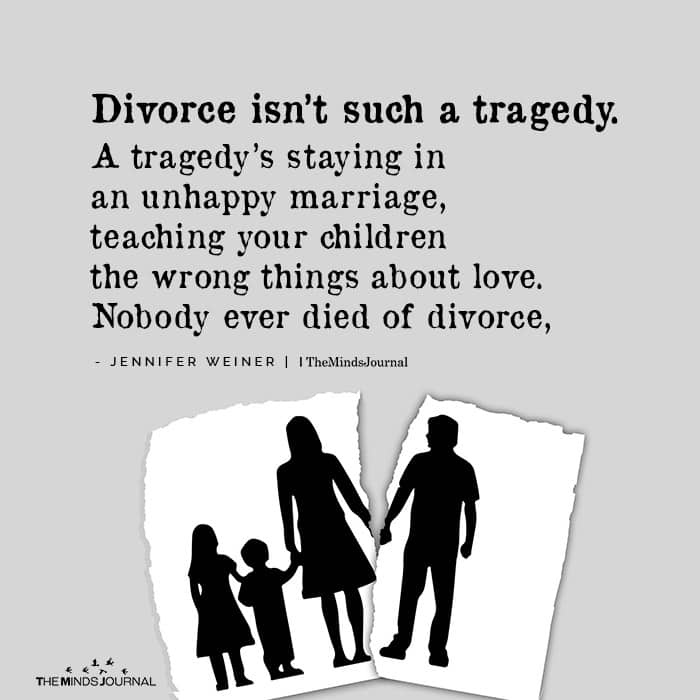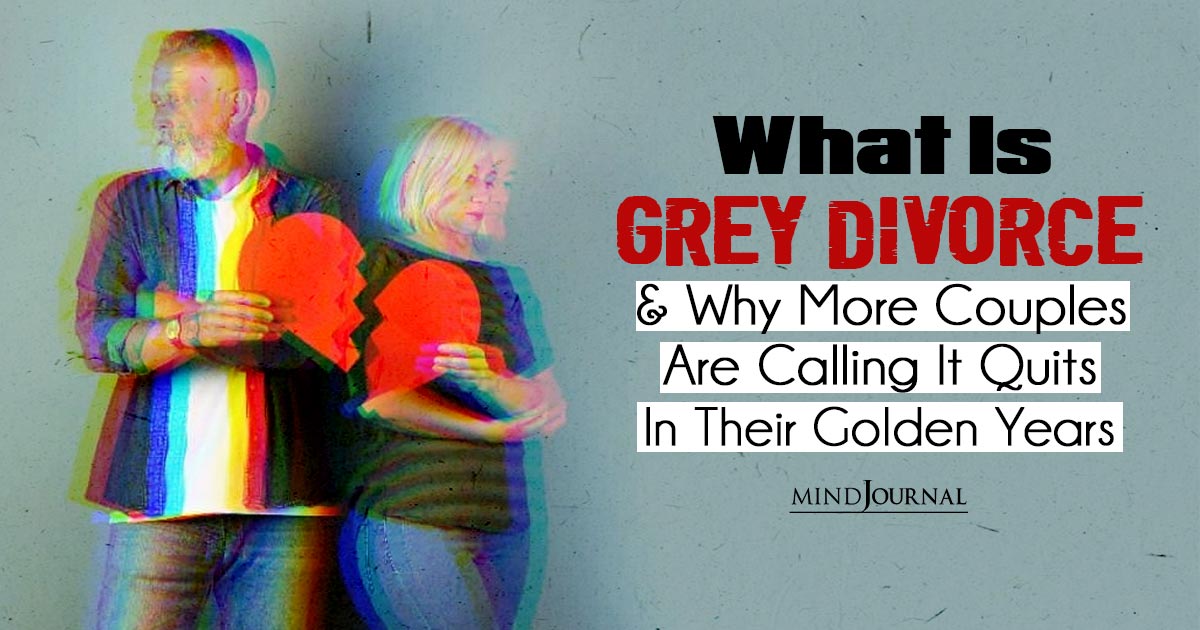Making the decision to divorce is one of the hardest decisions to make. When you decide to divorce your spouse, you may feel a ton of emotions that you did not expect at all. This article is going to talk about those feelings and emotions so that if ever you make the decision to divorce, you know what to expect.
KEY POINTS
- The decision to divorce is a personal and deeply emotional experience.
- There is a common misperception that the person who decides to divorce doesn’t suffer from the decision.
- The emotional journey is unique to each individual, and there are no right or wrong ways to feel.
Abby (not her real name) is 42 years old and has felt trapped in her marriage for many years. She and her husband have worked hard in couples counseling for many years, but the arguing and lack of romance continue to frustrate her. She’s seeking therapy to consider divorce.
“It was my rule for myself, that I would never divorce. I suffered when my parents divorced and I don’t want to do that to my children,” she tells me tearfully. “How unhappy do I have to be to justify a divorce? Is it healthy for our kids to see us fighting and to see me so unhappy? Will divorce ruin their lives? Should I stay married for their sake? Should I just accept an unhappy marriage?”
Abby has many questions she wants to explore with me, and I explain that my role is to help her think through her decision, but I will not tell her what to do.
The decision to divorce is a personal and deeply emotional experience, and people have a range of reactions and feelings as they consider the decision. Most find the decision to divorce a complex and difficult process, even when there are compelling factors such as abuse or addiction.
There is a common misperception that the person who decides to divorce doesn’t suffer from the decision. However, my experience as a psychologist has shown that making the decision can be fraught with many emotions.
Being the one who makes the decision is certainly different from the experience of the spouse who is informed of the decision. But the emotions are no less intense.
Related: How To Get Over A Failed Marriage
7 Emotions You May Feel When You Decide To Divorce
1. Sadness and Grief
Even if the decision is mutual or necessary for safety, most experience a deep sense of loss. It is the death of the dream you have when you make your marriage vows and plan a future together.
Abby recalls what had drawn her to her husband and her vision of a “perfect childhood” for her children. She wonders why things went wrong and tearfully anticipates causing her husband and children pain.
When we meet, she is suffering from deep sadness and grief.

2. Relief
In some cases, individuals, along with sadness, grief, guilt, and anxiety, may feel a sense of relief having decided to divorce. The idea of ending an unhappy marriage, ending the conflict, or leaving an “empty” marriage can bring relief.
Abby describes her marriage as “empty” because she and her husband rarely talk to each other, except about the children. There is little affection or warmth in their relationship. “I don’t think he’d notice if I cut off all my hair, as long as dinner was on the table at 6:00,” she says bitterly.
3. Guilt and Shame
People may experience guilt or shame about the decision, especially if they believe they are letting down their partner, their families, or even themselves.
Abby knows her in-laws will cut her off if she decides to divorce. She knows others will judge or question her decision. But her biggest source of guilt relates to her spouse and children and “doing the awful thing to them that I promised myself I would never do.”
4. Fear and Anxiety
People are anxious about the legal process, which is a mystery to most of us. It is complicated and requires focus at a time when most are overwhelmed with emotions and trying to adjust to a new reality. There are many unknowns before a divorce is finalized, and this causes a lot of stress and anxiety.
Abby’s anxiety about the future focuses on her ability to return to work. She says, “My husband loves the kids and I think he will be a good father, but he will fight me over money.
I just want to be able to support myself. If I can do that, I think I can figure out how to be a good single parent. Maybe someday I’ll want another relationship, and I hope it will be a better one.”
Related: 5 Ways To Rebuild Your Life After Divorce
5. Ambivalence
People typically experience a mix of conflicting emotions. Doubts about the decision, fear for the children’s future, or uncertainty about financial security can create a sense of ambivalence.
Grief at the loss of the “dream” can co-exist with relief at the ability to start a new chapter of life. Anger at a spouse can coexist with guilt at causing that spouse pain and suffering.
Shame about letting herself down lives in Abby along with a sense of empowerment, being able to make the decision to self-support after divorce.
6. Empowerment
For some, it is a sense of powerlessness or helplessness that keeps them stuck in indecision. Some feel empowered by the decision to divorce, taking control of their own life and pursuing a path that better aligns with their goals, values, and mental health.
Abby tells me that she feels “small” in her marriage, as her husband is the breadwinner and therefore makes all family decisions. “He decides where we vacation in the summer, whether we invite people to dinner, which schools our kids attend, and even what color to paint the bathroom!”
It is her sense of insignificance that keeps her from deciding about divorce.

7. Anger and Resentment
Anger is often a factor in deciding to divorce, whether directed toward the partner, oneself, or external circumstances. Infidelity, broken promises, unmet needs, or past injuries feed the anger.
Abby learns that her anger is masking deep hurt and pain, and in therapy, she begins to understand the sources of her anger. She brings it up in a couples counseling session and later tells me her husband either got defensive or “didn’t remember” the past hurts.
Once she has talked about it, and the anger is reduced, she finds it easier to contemplate her options. “I won’t get divorced just because I’m mad,” she says. “I want to think it through without the anger and make a thoughtful decision. A lot of people just blame, blame, blame their exes, but I want to own my part too.”
Related: 10 Ways To Overcome The End Of A Long Term Marriage
Abby ultimately decides to divorce. We discuss the different divorce options and I encourage her to look into mediation or collaborative divorce to avoid the stress and conflict of litigation.
As we talk through many of her emotions, I caution her that her feelings will ebb and flow, and come in waves, over months and even years. I want her to know that the emotional journey associated with divorce is unique to each individual, and there are no right or wrong ways to feel.
Abby’s commitment to seeking support from friends, family, or professionals such as therapists can be valuable during and after this challenging time.
© Ann Gold Buscho, Ph.D. 2024
Check out more of Ann Gold Buscho’s works on her blog here.
Written By Ann Gold Buscho Ph.D. Originally Appeared On Psychology Today








Leave a Reply